Curriculum and the Child Redux
Interview by Richard Marshall.
[Art: Paula Rego]
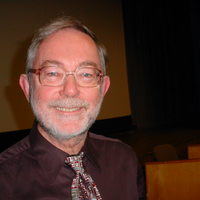
'My objection is not to subjects as such, but to the common way of thinking about school education that identifies it with learning a cluster of discrete subjects – usually mother tongue and its literature, maths, the sciences, foreign languages, history, geography, art, music, RE, PE and (these days) ICT. Again, my answer to your last question throws light on the problem I have with this way of thinking. Associating the curriculum with subjects – any subjects – starts too far in: it goes straight to vehicles without beginning, as thinking about the content of education should begin, with overall aims.'
'These days, as in the middle classes’ wresting of power in the mid-nineteenth century, people may be keen on curricular vehicles that are rich in items of knowledge because these are most easily testable in examinations that lead on to higher education and a ‘good’ job.'
'Cutting across the political and other beliefs that divide us within this framework are values which nearly all of us share or at least say we share. We want ourselves and others to have a flourishing personal life based on autonomously chosen activities and relationships. We want us all to possess the necessary conditions of such a life – good physical and mental health, adequate income, housing, education, time to ourselves, safety, the rule of law, internal and external peace etc. We want interesting work with all positions, including élite positions, open to all of us. We want to live in a democratic society, one that involves all of us in different ways in decision-making affecting the well-being of ourselves and the various communities, local and national, in which we live.'
'In more recent times, too, I have paid more attention to the intertwining of one’s own well-being with that of others, including intimates, neighbours, colleagues and strangers. I have also moved away from an ‘informed desire-satisfaction’ view of personal well-being – but not as far as an ‘objective list’ one. Personal well-being has to do with wholehearted and successful absorption in intrinsically valuable activities and relationships.'
'The attachment of psychologists like Burt and his followers to IQ testing has privileged intelligence in logical and linguistic reasoning – the sorts favoured in an academic curriculum – over other kinds of intelligence. This is why IQ testing was widely used in England from the 1940s to the 1960s to help select students for grammar schools.'
'One great advantage of schools as distinct from possible alternatives like home schooling (which could never in any case be a universal possibility) is that they are small communities in themselves.'
'Another, perhaps more powerful, objection is that the domination of élite positions in society by private school alumni (71% of judges, 62% of senior armed forces officers, etc) is more suited to a hierarchical society than a democratic one based on equality of respect.'

John White is Emeritus Professor of Philosophy of Education at the UCL Institute of Education, where he has worked since 1965 after teaching in secondary schools and colleges in Britain and France. His interests are in the mind of the learner, and in educational aims and curricula. Here he discusses the school curriculum, the distinction between aims and vehicles of delivery, how best to think about subjects , why it's just factually wrong to think we've always had the same subjects, and why this matters, what he thinks the purpose of education is, the aims-based curriculum model, the importance of autonomy and human flourishing, why Richard Peters was wrong to argue for a general education based largely on the study of truth-seeking subjects for its own sake, the poor science and ideology of IQ testing and intelligence measures generally as used by educationalists, whether schools should survive, the problem of private schools, whether he self-identifies as an analytic philosopher of education and how he would describe the aims and objectives of philosophy of education. Boom!
3:AM: What made you become a philosopher?
John White: If I’d come from a family that knew its way around, or attended a school with wider horizons, I might have known about philosophy as a possible subject I could take at university. I might well have takenit, too, having an interest – untutored, except via things that happened to come my way like Sartre’s ‘Existentialism is a humanism’ – in notions connected with personal freedom and questioning authority. But I wasn’t from such a family or from such a school, so, having been steered towards medieval history in the sixth form, despite my attachment to independence of thought it seemed to me incontrovertible that the good life consisted for me in studying this for ever.
It was only in my teacher training year at Bristol University in the late 1950s that I saw a way ahead. Professor Roger Wilson, who ran the course, let me know in his kindly way that the essays I was writing for him on education were interesting but half-baked. He said that if I taught in London I might consider contacting his friend Richard Peters, who ran a BA evening course in philosophy and psychology at Birkbeck College. I signed up and was hooked, not only by Peters’ focus on important questions about how our minds work and we should live but also by his way of teaching. This was partly through silence….sitting puffing at his pipe for ages until someone was brave enough to answer his question. I was lucky enough, too, to be taught by David Hamlyn, A Phillips Griffiths and Ray Elliott. After I got my degree in the mid-1960s, I began teaching philosophy of education with Peters at the University of London Institute of Education.
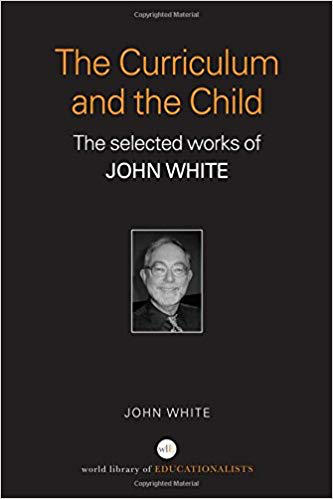
3:AM: One of the areas of philosophy of education that interests you is the school curriculum. You mainly look at English schools but think much of what can be said about the curriculum as it relates to the English education system can be generalised. Do you think schools should have a set curriculum that is the same for all schools and what do you see as the purpose of any curriculum?
JW: A crucial distinction is between what a school’s aims should be and how these aims should be realised – that is by what vehicles (discrete subjects, interdisciplinary activities, personal and collective projects, school ethos, extra-curricular activities etc). Schools should have a lot of freedom in deciding which vehicles are most suitable. For one thing, knowing their students and the communities they come from helps them to know what vehicles are likely to work best and when. For another, to do their job properly, in collaboration with others on the staff teachers need a certain measure of autonomy. This is important, bearing in mind what students can pick up from the way their school is run, if preparation for autonomy-based cooperativeness at work figures among the educational aims we should be promoting. So, no, I can’t see any grounds for a set curriculum that is the same for all schools – if by ‘curriculum’ you mean the total content of a school’s education as embedded in various vehicles.
Your second question, about what the aims behind any school curriculumshould be, is one of the most central questions in philosophy of education. It is bound to occupy us throughout this whole interview. I touched on it when I suggested that equipping students to become autonomous and cooperative workers might be among our educational aims. This is partly because education should be about developing students’ personal autonomy and cooperativeness more generally. This in turn has to do with equipping them to become citizens in a liberal democratic community.
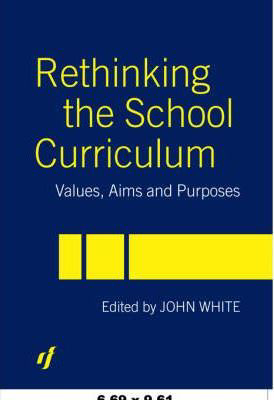
An attachment to autonomy aims is also evident in my answer to your first question. My own schooling was lacking because it did little to open up a wide range of possible ways of life, including types of work, as a basis for autonomous choices. My first book Towards a Compulsory Curriculum(1973) laid great stress on this – too much stress as I think now. In order to lead an autonomous life, students do not need to be acquainted with the whole range of possible options, as I argued then, only with sufficient options to enable them to lead a flourishing life.
One last point. I have said that schools should not all have the same curriculum, taking this term to include a reference to vehicles. It is a further question whether they should all be working to the same set of aims, and if so, how these aims are to be determined and by whom. I hope to come back to this too.
3:AM: You raise questions about having the curriculum organised via subjects. This might seem a little strange to some people – it seems natural to have learning chunked into subjects – maths, languages, English and so on. So is your problem with subjects per se, or is it that you want different subjects?
JW: Neither of these things, I think. I have no objection to maths, languages or other subjects as separate items on the curriculum wherever a school sees them as good vehicles to realise desirable wider aims. I imagine most schools, for good reasons, often would want to use them along with other vehicles.
My objection is not to subjects as such, but to the common way of thinking about school education that identifies it with learning a cluster of discrete subjects – usually mother tongue and its literature, maths, the sciences, foreign languages, history, geography, art, music, RE, PE and (these days) ICT. Again, my answer to your last question throws light on the problem I have with this way of thinking. Associating the curriculum with subjects – any subjects – starts too far in: it goes straight to vehicles without beginning, as thinking about the content of education should begin, with overall aims. We could learn here from the new Finnish National Curriculum of 2016. This has introduced compulsory ‘multi-disciplinary learning modules’ alongside subjects as a way of realising its central aims.
3:AM: Haven't we been using largely the same subjects since schooling began? Does this stability of subjects tell us something positive is happening – maybe we are in this particular groove because it works? It seems the same kind of argument that we find about classrooms – we’re used to teaching in classrooms since schools began because it works. Why don’t you see this as evidence that we’ve stumbled upon the best subjects for the job?Can you sketch for us how it came about?
JW:Your question takes us into empirical matters in the history of education. This is a natural route to follow once one is struck by the taken-for-grantedness of the standard subject-based curriculum: why is it that so many of us take this on trust rather than asking for a rationale in terms of underlying aims and values? This looks like traditionalism, in the sense of an implicit belief in the worthwhileness of what has come down to us from the past.
Leaving aside the rationality of such thinking, what truth is there in the belief that the standard curriculum is historically deep-rooted? Until the nineteenth century in Britain as in many other western countries, the school curriculum – for those who went to school like the children of the landed élite – had long been based on Latin and sometimes Greek, ie notthe ‘standard curriculum’. Meanwhile, Calvinist and other protestant communities in northern Europe and North America had developed curricula in their own academies focused on logically subdivided discrete areas of knowledge, including mathematics and natural philosophy (science) as well as languages, history and theology. The reasoning behind this was originally religious, connected with an encyclopaedic understanding of God’s universe. Aesthetic subjects were at first absent – a reflection of radical Protestantism’s wariness of the spiritual errors into which the imagination and the emotions can lead us.
In Britain, as the new industrial and commercial middle classes with strong links to dissenting communities came to power in the nineteenth century, they promoted this newer curriculum at the expense of the classics-based one. As a curriculum based on items of knowledge, it suited the demands of the civil service and school examinations which they also created after 1850 that enabled them to break into and soon dominate élite posts until then allocated by patronage. From then until the 1960s a divided educational system had grown up, with grammar and private schools broadly following this pattern, and schooling for the masses restricted to more elementary learning and manual training. Since the arrival in 1988 of both a national curriculum and a common national examination (the GCSE), what we now take for granted as the ‘standard curriculum’ (the old knowledge-based core plus newer subjects in the arts and other areas) has been extended to the whole school population. Since 2010, knowledge-based subjects have recovered much of their earlier dominance via their monopoly of the ‘English Baccalaureate’ subjects now given pride of place in the secondary curriculum and the GCSE. How far these various post-1988 developments have eroded the education-based power of the socially advantaged is another question.
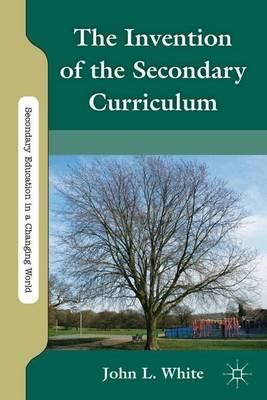
All this is a compressed, thumb-nail sketch, documented more fully in my The Invention of the Secondary Curriculum (2011). I mention there another philosopher of education whose critiques of the status quosometimes took him into history - John Dewey. In his 1916 classic Democracy and Education, he described the content of the subject-based curriculum as information distributed into various branches of study, each study being subdivided into lessons presenting in serial cut-off portions of the total store. In the seventeenth century the store was still small enough so that men set up the ideal of a complete encyclopedic mastery of it. It is now so bulky that the impossibility of any one man’s coming into possession of it all is obvious. But the educational ideal has not been much affected. Acquisition of a modicum of information in each branch of learning, or at least in a selected group, remains the principle by which the curriculum, from elementary school through college, is formed; the easier portions being assigned to the earlier years, the more difficult to the latter. (p220)
Your belief is that we have had this stability of subjects ‘since schooling began’ as you also put it earlier. As you can tell from what I've been explaining I think you are wrong about this. As for the idea that we are attached to the standard array of subjects ‘because it works’, what do you mean by this? Is the thought that the standard curriculum is successful in realising desirable aims of education? If so, this has to be argued for, not assumed. These days, as in the middle classes’ wresting of power in the mid-nineteenth century, people may be keen on curricular vehicles that are rich in items of knowledge because these are most easily testable in examinations that lead on to higher education and a ‘good’ job. Secondary academies and other English schools which parade banners saying ‘Outstanding School’ at their entrances may well be guided by thisstandard of ‘what works’; but exam success is as far as this gets. How this bears on how far the school is meeting worthwhile educational aims is, again, another question.
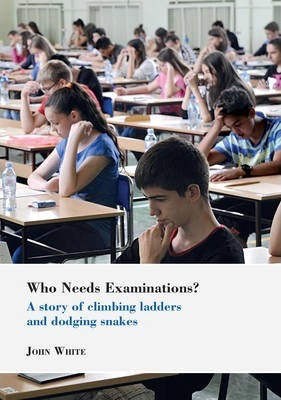
3:AM: So we need to know how you’d go about answering the fundamental question driving all this: what’s the purpose of education? To begin with then , could you say something about what values and purposes are currently underpinning the school curriculum, either implicitly or explicitly?
JW: This is yet another empirical rather than philosophical issue and you would have to go to a sociologist for a full answer. Here is a partial one. In England, one value often said to underpin the current curriculum is ‘equality of opportunity’. This often seems to mean that the common curriculum and examination system we have had since 1988 allows every student to engage in a fair competition for good exam results opening the door to a university degree and a desirable job. Critics challenge this alleged fairness, arguing that the system is designed to favour more advantaged families: those with means can hire private tutors, involve their children in educationally valuable out-of-school activities, and use school league tables (introduced in 1992, ie. soon after the 1988 changes) to buy or rent homes in the catchment areas of the most successful schools.
3:AM: And if you had your way, what values and purposes would you have underpinning the curriculum? You argue for what you call an aims based curriculum don’t you? What is this and how will it bring about flourishing better than the current paradigm?
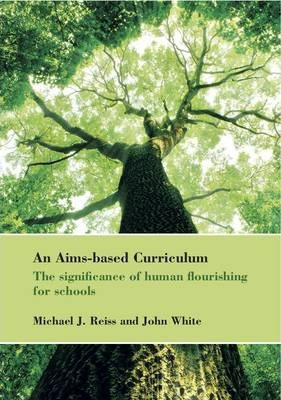
JW: By an ‘aims-based curriculum’, as Michael Reiss and I explain in much more detail in our 2011 bookof that name, is meant one that goes from purposes to vehicles rather than starting too far in with taken-for-granted vehicles like standard subjects. I hope what I have already said about this is clear enough. As to what the aims of a community’s (eg a national or a local community) curriculum should be, this depends on who should have the power to determine them. Before 1988 in England schools themselves were responsible for their own aims. But as I first argued in Towards a Compulsory Curriculum(1973), there is no good reason why teachers should be privileged in this over other members of the political community. In 1988 the responsibility shifted to the current government. But this gives too much power to education ministers and can lead to the imposition of subjective or ideologically driven preferences. The present statement of the aims of the National Curriculum, for instance, is extraordinarily brief, laying down little more than that ‘it provides pupils with an introduction to the essential knowledge they need to be educated citizens.’ No justification is given for putting all the weight on knowledge acquisition; (and the phrase ‘the essential knowledge they need..’ looks plainly tautological).
Given that we have a national curriculum, I have, along with others, argued for a Curriculum Commission at arms-length from government that, in close and on-going touch with a range of interested parties across the population, sets out a full and revisable statement of overall aims accompanied by a full rationale. Philosophical reflection in gear with empirical realities and possibilities can play a role here, along with other inputs, in suggesting and critiquing elements of this statement plus rationale.
It might suggest, for instance, that a way of coping with the problem of idiosyncratic preferences might be to base schools’ aims on protecting and promoting the liberal democratic community in which we all live. Cutting across the political and other beliefs that divide us within this framework are values which nearly all of us share or at least say we share. We want ourselves and others to have a flourishing personal life based on autonomously chosen activities and relationships. We want us all to possess the necessary conditions of such a life – good physical and mental health, adequate income, housing, education, time to ourselves, safety, the rule of law, internal and external peace etc. We want interesting work with all positions, including élite positions, open to all of us. We want to live in a democratic society, one that involves all of us in different ways in decision-making affecting the well-being of ourselves and the various communities, local and national, in which we live. Running through these desires are values of tolerance, equality of respect, cooperativeness in pursuit of common ends, and fairness.
From this broad aim of protecting and promoting our liberal democratic community it would not be difficult for a Curriculum Commission to derive more specific aims that can shape schools’ curricula. Here are two examples out of many. First, civic education. This has to go beyond acquainting students with democratic institutions in their social and historical context to understanding and practising their underlying values just mentioned.
Secondly, vocational education. It requires a broad acquaintance with the economy and the world of work, enabling every student to understand what is involved in a wide range of jobs open to them. This entails in its turn ensuring that they have a good grounding, inter alia, in the scientific, mathematical and technological understanding that underpins so much of modern life. In education for work as in other fields the Curriculum Commission would have to adjust its aims as time passes to accommodate changes in social life. The future of work is likely to depend more than ever on automation. This might mean a shorter working week and/or wide-scale unemployment and fewer jobs to go round, not least jobs for life. Students have to be equipped to be flexible in taking on new jobs and to make good use of their time if unemployed or with more leisure.
A statement of national or more local aims could look something like this, with schools given great freedom in devising curricular vehicles that reflect them and an inspectorate judging schools on, among other things, their imaginativeness as well their effectiveness in doing this. Educational reforms in Finland since 2016 point one way forward.
Part of philosophy’s contribution to aim-making, in collaboration with other disciplines and perspectives, is to show the complexity of and interconnections between central concepts involved in this starting point (eg democracy, personal well-being, personal autonomy, work, equality, fairness, cooperativeness, tolerance, respect) – as well as further concepts like knowledge, understanding, imagination, emotional and moral dispositions, given the role of these and other aspects of our mental life in personal well-being and civic involvement. This reference to knowledge and understanding brings us back to the current aim of the English National Curriculum to do with knowledge-acquisition. The crucial difference from what I am now suggesting is that the current aim is totally lacking in substance, while what I have in mind is the knowledge and understanding students need for their own flourishing and for that of their community.
Philosophers of education can help people to examine the adequacy of arguments put forward in support of various aims and make up their own minds about them. Needless to say, the ‘liberal democratic’ approach to aims mentioned above would be subject to such critique. Should this be where thinking about the school curriculum should begin? Or are there more defensible alternatives?
3:AM: You link autonomy and human flourishing and both are complicated and complex ideas with diverse histories. Could you say something about what each of these mean for you and out of which philosophical traditions – and philosophy of education tradition - you’re pulling them from? Are they the core of what you mean when you say that education ought to lead to a meaningful life – where ‘meaningful’ is also rather a tricky idea to pin down?
JW: As I said in my last reply, a central feature of our liberal democratic way of life is that ‘we want ourselves and others to have a flourishing personal life based on autonomously chosen activities and relationships.’ Helping to bring this about should be at the heart of our educational aims. I look at autonomy in a moment, but first say something about a flourishing personal life or a life of personal well-being.
I may be wrong, but as far as I know, philosophers have only explored the concept of personal well-being in any detail since the late 1980s. If this is true, it would be interesting to know why. Does it somehow reflect the increasing affluence of most people living in Western countries since the war (at least until the last decade) and a greater concern with living a full life as the struggle for basic necessities became a thing of the past?
Without going back to Mill and Moore, one exception among philosophers before the 1980s is Richard Peters. In ‘The autonomy of Prudence’ (1962) written with his Birkbeck colleague, A P Griffiths, they tried to derive the main features of ‘prudence’, ie. what we would now call ‘personal well-being’, via a ‘transcendental deduction’ in the Kantian tradition. Peters developed this in an educational direction in Ethics and Education (1966, ch 5), arguing that a rational person reflecting on the features of (what we would call) a flourishing life would have to conclude that, among other things, it must include the pursuit of intrinsically worthwhile activities of a truth-seeking sort.
I argued against this in Towards a Compulsory Curriculum (1973), seeing it as too restrictive, and arguing for an account of well-being based on the informed desire-satisfaction of an autonomous chooser. At the same time, I held on to Peters’s insight that well-being must be a pivotal concept in discussions of educational aims.
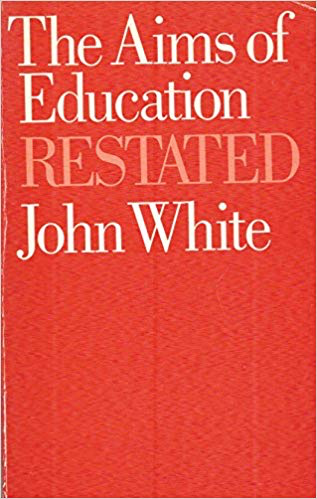
That is why my 1982 book The Aims of Education Restated dwelt in far more detail on the nature of ‘the good of the pupil’. I retained and defended at length the 1973 definition of well-being, but with more attention to its wider setting within social life and the implications of this for education. This included more comments on the role of basic needs in personal well-beingas well as comments on hedonist, Hegelian and religious views of the concept. It also contained lengthier discussions of relationships between one’s own well-being and vocational matters on the one hand and the well-being of other people on the other.
Since the mid-1980s, with publications on personal well-being by Crisp, Feldman, Griffin, Haybron, Hurka, Kraut, Kupperman, Layard, Lear, Raz, Sumner, and others, there has been an abundance of good material on the topic. This has caused me to modify my earlier thinking in three ways.
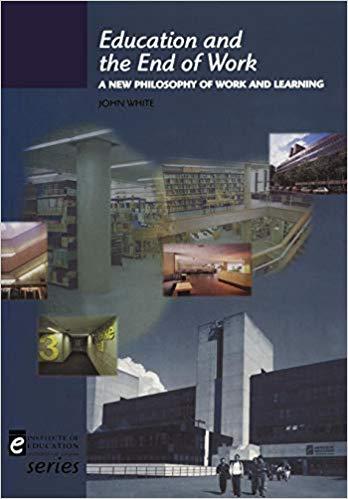
In TCC and AER I took it as read that equipping students to lead a flourishing life involves equipping them to be autonomous agents, that is to choose their own major goals and relationships and not blindly follow what is laid down for them by others. From my Education and the Good Life (1990) onwards, I have accepted that it is a specific cultural perspective that brings the two notions together in this way, given that so much of our way of life in a modern liberal democracy is built around choice of major goals (eg in employment, personal relationships, politics, religious beliefs, leisure interests). In a more tradition-directed community one can still make a distinction between people who are flourishing more than others: those who, say, live in continuous distress through ill-health, grief, poverty.
In more recent times, too, I have paid more attention to the intertwining of one’s own well-being with that of others, including intimates, neighbours, colleagues and strangers. I have also moved away from an ‘informed desire-satisfaction’ view of personal well-being – but not as far as an ‘objective list’ one. Personal well-being has to do with wholehearted and successful absorption in intrinsically valuable activities and relationships. In Chapter 11 of Exploring Well-being in Schools (2011), I build an account of well-being values in general on a discussion of aesthetic values, arguing that in both cases these do not reflect purely personal preferences but the informed judgements of those with wide experience of the subject matter. This includes proliferations of new kinds of value through cultural changes over time (eg. the novel and its genres, with all their manifold values that appeal to us today, did not exist five centuries ago).
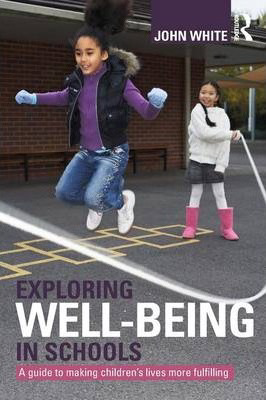
In these changes of stance I have been indebted to the writings of Joseph Raz.
On the topic of ‘a meaningful life’, although you suggest that I think that education ought to equip us for this, I am in fact wary about the idea. My religious scepticism leads me to reject any theological version of this notion that locates the meaning of life in something transcendental. Outside a religious context, and unless ‘meaningful’ collapses into something like ‘flourishing’, the idea seems pretty empty. What is a meaningless life like? It is one where, as sometimes in grief or other personal tragedy, the bottom of one’s world – as we put it – falls away and we are left without bearings. To say that schools should equip us for a life different from this is not saying anything very helpful.
3:AM: Richard Peters argued for a general education based largely on the study of truth-seeking subjects for its own sake. Was he wrong to do so?
JW: Yes. His view in his celebrated Chapter 5 of Ethics and Education (1966) was based on the claims [1] that education is to be understood as initiation into intrinsically worthwhile activities (p.45); and [2] that, as stated above, truth-seeking ones among these are those to which any rational person is committed by asking the question ‘why do this rather than that?’ (p.161).
As I argued in TCC, [1] imports a controversial value judgment about educational aims into a supposedly neutral ‘conceptual analysis’; [2] the rational person who asks this question may indeed be wanting to discover a true answer to it, but that does not commit him or her to pursuing a truth-seeking academic activity.
While I am now happy to link personal well-being with the pursuit of intrinsically valuable activities as well as relationships, I see no reason why the academic activities that Peters favours should be privileged among these. There are intrinsically valuable features of intimate personal relationships, ice skating and gardening.
In any case, school education is more than an initiation into intrinsically valuable pursuits. It should also include, for instance, kinds of knowledge and understanding pursued for extrinsic reasons. As I argued before, students need some understanding of democratic institutions and of the economy. This is not only because this understanding may be desirable in itself but because it is a necessary condition of something larger of which it is a part: their civic education. Extrinsic reasons thus rightly play a large part in schooling. It is not helpful, to do as Peters did and exclude them from the province of education by definition. (Whether instrumental reasons as distinct from extrinsic ones should play a part in school education is a further question. As things are at present, secondary students are often encouraged to improve their understanding of maths, science and other areas so as to get good exam results. They are doing this not as a part of something wider, as in the previous example, but as a means of attaining something else.)
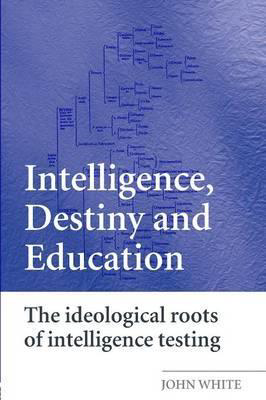
3:AM: You have written a lot about IQ and intelligence generally as used by educationalists. You think IQ is based on poor science and ideology and you think the same of Howard Gardener’s multiple intelligence thesis as well don’t you? Can you sketch for us what’s wrong with the evidence for these things, what ideological thinking guides them and also say something about why they’ve had and still have such a hold on educationalists?
JW: Human intelligence has to do with the flexible adaptation of means in pursuit of one’s goals. As Ryle said in The Concept of Mind (1949: 48), human intelligence takes many different forms: ‘the boxer, the surgeon, the poet and the salesman’ have their own different forms of intelligent operation, applying ‘their special criteria to the performance of their special tasks.’ The attachment of psychologists like Burt and his followers to IQ testing has privileged intelligence in logical and linguistic reasoning – the sorts favoured in an academic curriculum – over other kinds of intelligence. This is why IQ testing was widely used in England from the 1940s to the 1960s to help select students for grammar schools.
Part of the rationale, again deriving from Burt, has been that IQ testing reveals an individual’s innately determined upper limits of potential intellectual achievement: those rejected for grammar schools were held to have upper limits too low to benefit from an academic education. I have argued that, except for eg. brain-damaged children, it is hard to see how one can either verify or falsify the claim that we each have our own upper limits. A popular version of the upper limits view is implicit in some current educational practice, ie where some children as seen as ‘bright’ and others as ‘dim’ or ‘slow’. The ‘Learning without Limits’ movement among educational practitioners and researchers refuses to accept this way of classifying learners and arranges its pedagogy accordingly.
The idea of ‘multiple intelligences’ rejects this privileging of the intellectual. Gardner has claimed that there are seven or eight kinds of intelligence, including not only the logico-mathematical and linguistic forms favoured in IQ tests, but also musical, spatial, bodily-kinaesthetic, intrapersonal, interpersonal, naturalist and existential. We each have strengths – partly innate, partly the product of developmental unfolding – in different arrays of these. The theory has appealed to many teachers, encouraging them to classify children according to their various strengths and ‘learning styles’ and to fit their own pedagogy and sometimes curricular content to these.
I have various complex problems about the criteria Gardner uses in showing that this classification is a scientific one based on empirical evidence, including [a] his reliance on theories by Piaget about development and Goodman about symbol systems about whose soundness I have doubts; and [b] the dependence of his classification on value judgments about which kinds of ability are important in human life.
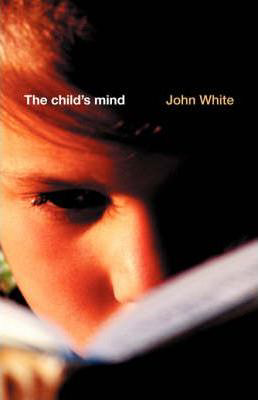
I say more about the IQ and MI accounts in the chapter on intelligence in my The Child’s Mind (2002). The two accounts provide examples of the role of philosophy of education in critically assessing psychological theories that have been educationally influential. Two other examples are David Hamlyn’s critiques of Piaget’s and Chomsky’s theories and of behaviourism in his Experience and the Growth of Understanding(1978).
3:AM: We’ve talked about what’s right and largely wrong with the current state of the school curriculum but some might say that schools are the real problem. So what are schools for and should they survive the next century?
JW: There isa problem. In England we have lived since 1870 with a legacy of schools for the masses being seen as preparing them to accept a lowly position in society and schools for the élite doing the opposite. For those who have wanted to preserve the social status quo, schools have been ideal vehicles. On the mass schooling side, despite obvious improvements, in many places we are still feeling the effects of a legacy of surveillance, containment, obedience to authority, making students attend to things in which they show no interest – features shared, as Foucault has brought home to us, with prisons, workhouses and asylums.
Because women have become freer over the last fifty years to pursue their own careers and near-universal child care is a necessity, we could not get rid of schools of some sort even if we wanted to. In any case, properly run and attentive to aims first and vehicles second, they can be just what we need. If they value personal well-being and personal autonomy, they can focus, increasingly as children grow older, on giving them more space to do things which absorb them and which they willingly choose. They can help them to prepare for a working life, especially if they keep in mind more practical forms that this can take and are not hidebound by an intellectualist tradition. If, as some predict, paid work plays less of a part in our lives in the future and given the twenty years or more of retirement that most people can look forward to, schools have even more reason to create spaces where students make contact with and autonomously pursue activities of intrinsic value in which they can get wholeheartedly involved and carry forward into the increased amount of leisure they may well have in their lives.
One great advantage of schools as distinct from possible alternatives like home schooling (which could never in any case be a universal possibility) is that they are small communities in themselves. This makes them ideal for inducting learners into practices of participatory democracy on which the larger liberal democracy in which most of them will live their lives should be based (rather than majoritarian conceptions of democracy more dominant now). All this speaks for more room for discussion and discussion-based decision-making on all sorts of issues, and for students to be involved along with others in their own formative assessment. We can learn a lot here from the Deweyan tradition in education. We can learn from schools, not least primary schools, that are emphasising ‘pupil voice’ in all their practices. We can learn from the revolution in Finnish schooling.
It also means breaking free of the assumption, also part of the dubious legacy I have mentioned and celebrated by philosophers like Oakeshott, that schools should be places apart. They should not be isolated as traditional prisons and asylums have been from the wider community. Their links with students’ families should be close, seeing that both institutions are involved in a child’s upbringing and should coordinate what they do. We can also envisage an extension of the two-way process in which students go out into the extra-school world, on visits, work experience and involvement with the local community; and people from various walks of life come into school to engage with students in all sorts of ways.
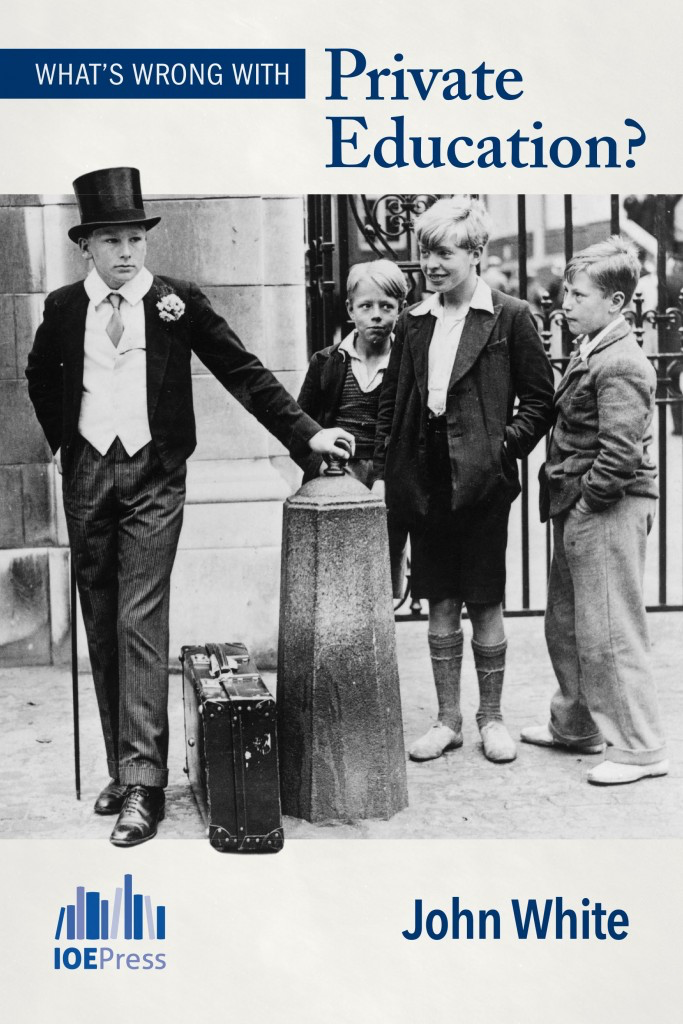
3:AM: I’ve always disliked private schools but there are arguments for and against them. Obviously I think the arguments against are better than those for, so where do you stand on this rather toxic issue?
JW: Again, my focus is on England, where only 7% of school students are privately educated, yet in 2011 64% per cent of them went on to Russell Group, ie élite, universities, compared with 24% from state schools. This has raised the charge of unfairness: private school students gain competitive advantage over others in access to well-paid or interesting jobs.
Another, perhaps more powerful, objection is that the domination of élite positions in society by private school alumni (71% of judges, 62% of senior armed forces officers, etc) is more suited to a hierarchical society than a democratic one based on equality of respect. To make the situation more democratic we could build on Elizabeth Anderson’s recommendation in her article on ‘Fair opportunity in education’ that ‘a just … educational system must prepare students from all sectors of society, and especially those disadvantaged along any dimensions, with sufficient skills to be able to succeed in higher education and thereby join the élite.’
The two objections are linked, respectively, with the two major approaches taken in philosophical discussions of equality, to do with distributive and relational equality. How these are to be related to each other? Is the former important because breaching it harms the latter? In the present context, is the competitive advantage of private school students undesirable because it helps them to dominate élite positions, or is it independently undesirable? I have found Kasper Lippert-Rasmussen’s Relational Egalitarianism: living together as equals(2018) insightful on the general philosophical issue on relationships between the two approaches to equality.
Should private schools be abolished? Doing so would run up against another democratic value, of interfering with people’s freedom to do what they want, in this case with their money, provided they are doing no harm to others: what some private schools do may be wholly benign. A more promising path to explore might be the introduction of quotas for the proportion of private school students admitted to universities, especially élite ones. Over time this could be reduced to a figure far closer to 7%. Private schools could also be obliged to follow the aims set out in an improved National Curriculum, as discussed above: they are not at present bound by the current one.
3:AM: As in philosophy generally so too in philosophy of education there are different traditions at play. Would you self-describe as an analytic philosopher of education and in so doing be distancing yourself from continental philosophy of education? Is this a distinction that tracks genuine philosophical differences or is it just tracking a sociological difference that doesn’t actually cut at the joints of any philosophical dispute, as someone like Brian Leiter argues about the distinction in philosophy generally?
JW: No, I wouldn’t describe myself as an analytic philosopher of education rather than a continental one. And no, I don’t see a genuine philosophical difference here (or indeed a sociological one). Bernard Williams’s famous quip concerning philosophers in general that the comparison is like that between cars that are four-wheel-drive and Japanese almost hits it off, except that it seems to assume that there isa distinctive kind of philosophy called ‘analytic’ philosophy (in whatever country it is practised – France or the USA or wherever) and that its difference from other kinds has to do with how it proceeds, with its methods of philosophising.
Talk of ‘analytic’ philosophy or philosophy of education covers different things. In my early years as a philosopher of education from the late 1960s onwards, looking at distinctions in ordinary language between usages of terms like ‘education’ played some part in our work. – As did a reductive endeavour to break down educationally important concepts into their elements by uncovering the necessary and sufficient conditions of their use. While an attentiveness to often subtle distinctions between easily conflated concepts has always been important in our discipline, a more interesting approach to understanding concepts than the two mentioned has proved to be exploring their place within webs of related concepts and wider schemes of thought. Extending things in the latter of these directions has made philosophy of education less of a self-contained enterprise and underlined the importance of broad historical changes for philosophical understanding. Charles Taylor is especially helpful here in his Sources of the Selfand other works. Interconnections between philosophical thinking and work in fields like history, psychology, sociology and politics have become especially important in philosophy of education not only for conceptual investigations but also because of the applied nature of the discipline. One aspect of this is critical engagement with what is happening on the ground in education, with current policies, ideologies and proposals for reform. This work, too, cannot be self-contained, but has to take into account wider aspects of social life and politics like, for instance, trends in employment as well as social divisions connected with class, gender and race.
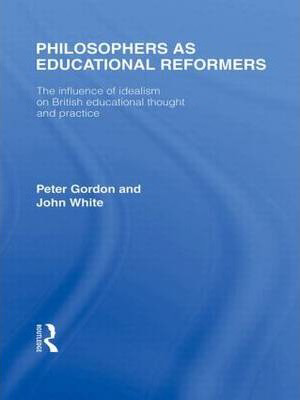
If ‘continental philosophy’ has to do with philosophy produced on the continent of Europe, I have always been interested in this where it has connected with my main interests. Leaving aside an early interest in Sartre and in Heidegger’s ‘das Man’ – which has helped to shape my lifelong attachment to the ideal of the autonomous life, an early co-authored book of mine, Philosophers as Educational Reformers (1979) is sub-titled ‘The influence of idealism on British educational thought and practice’. My part looks at T H Green’s and his followers’ indebtedness to Hegelian ideas in their support for a communitarian ethics and its application to political and educational reform. I have also found thought-provoking the historical light that Nietzsche brought to bear on the nature of morality and its links with religion, and which his follower Foucault shone, if in a rather broad-brush way, on closed institutions.
3:AM: As a take home then, how would you describe the aims and objectives of philosophy of education? It seems a very broad church philosophically – and interdisciplinary too. What is it and what does it hope to do – and why should people heed what philosophy of education has to say – and do you think other philosophical traditions should pay more attention?
JW: Again, I can best speak about the situation in Britain. When Richard Peters and Paul Hirst developed a new kind of philosophy of education in the early 1960s, they were massively helped in this by political events – the Robbins Report on higher education of 1963 and the championing of comprehensive schools by the incoming Labour government of 1964. These generated an all-graduate teaching profession and an interest in ensuring that teachers were upgraded in their skills and equipped for the new non-selective world of schooling. This meant, among other things, helping them to reflect on the larger parameters of their work – on the purposes of schooling, the school curriculum (over which schools in those days had almost complete control), the nature of children’s minds, and the credentials of popular theories in psychology and pedagogy. This work took place at pre- and in-service levels and was generously funded by the state.
People like myself cut our teeth in this new dawn and many of us are still attached to this conception of our work. This is especially true of work with experienced teachers, since unlike teachers in training they are not preoccupied with learning their difficult trade and are in a better position, if given the time, to see their day-to-day teaching in the perspective of larger concerns. But opportunities for such work have become more difficult over the last thirty years. This is because during Thatcher’s premiership in the mid-1980s state funding for all in-service education courses was suddenly abolished and since then teachers have usually had to pay for themselves. This has led to a great reduction in in-service provision.
But it has not led to a decline on every front, quite the contrary. Courses may have shrunk, but publications have multiplied – mainly because of pressure on academics to publish coupled with the globalisation of the subject. As to the content of these journal articles and books, the older emphasis on helping teachers to reflect on their work has given ground to some extent to new trends. Prominent among these is text-focused, close philosophical critique of the ideas of philosophers – from Plato and Aristotle down to Wittgenstein and Levinas – whose work has some educational relevance. There are signs that the more practically-focused work familiar since the 1960s is now becoming more salient again, with new perspectives on topics like equality in education, assessment, the teaching of reading, religious education, sex education, philosophy in schools and many others. There is also far more interest than in that earlier period in upbringing within the family, universities and research and post-school vocational education, but the main focus is still on schools. It will need wider political changes before our teachers are once again encouraged and given the time to reflect on the larger bearings of their work and how their day-to-day work meshes with these.
As to whether other parts of the philosophy community should pay more attention to philosophy of education, I see no general reason why they should. They have their own concerns and issues of education may not come into them. That said, over the last fifty years a number of prominent philosophers have contributed to debates in our field in the Journal of Philosophy of Education.These include, among others, David Bakhurst, R J Bernstein, Stanley Cavell, David Cooper, Nicholas Dent, Anthony Flew, H-G Gadamer, John Haldane, David Hamlyn, R M Hare, Ronald Hepburn, Martin Hollis, Steven Lukes, Michael Luntley, Alasdair MacIntyre, Susan Mendus, Stephen Mulhall, Richard Norman, Michael Oakeshott, Anthony O’Hear, Hilary Putnam, Anthony Quinton, A O Rorty, Gilbert Ryle, Israel Scheffler, Harvey Siegel, Michael Walzer, Mary Warnock and Bernard Williams, Since the millennium several philosophers have each written one of the IMPACT pamphlets published since 1999 by the Philosophy of Education Society of Great Britain to provide philosophical perspectives on educational policy. They include Michael Luntley on performance-related pay, Harry Brighouse on educational equality and selection, David Archard on sex education, Mary Warnock on special educational needs, Mary Midgley on intelligent design, Randall Curren both on education for sustainable development, and on character education. The latest IMPACT pamphlet, published in late 2018, is on ‘How to regulate faith schools.’ Three of its four co-authors are philosophically- interested professors of political theory in English universities: Matthew Clayton, Andrew Mason and Adam Swift.
3:AM: And finally, for the readers here at 3:AM, are there five books other than your own you can recommend that would take us further into your philosophical world?
JW:
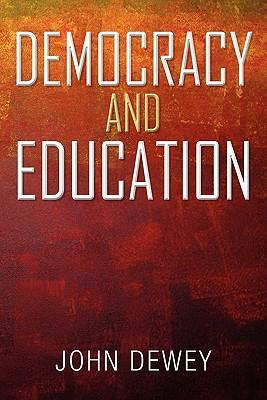
John Dewey Democracy and Education
Now over a century old, this classic text in philosophy of education becomes more and more relevant as time passes.
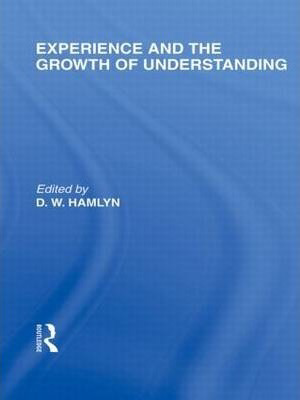
David Hamlyn Experience and the Growth of Understanding
Perhaps the most important work in philosophy of education in the area of epistemology/philosophical psychology/philosophy of language. A critical discussion of behaviourist, innatist and developmentalist theories of the growth of understanding from birth onwards followed by the author’s own account of this.
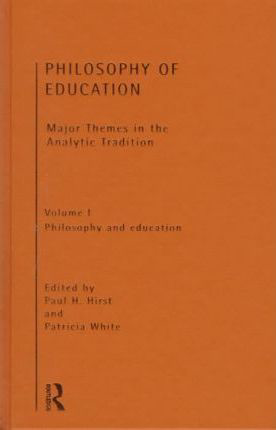
Paul Hirst and Patricia White (eds) Philosophy of Education: Major Themes in the Analytic Tradition
A four-volume work republishing some of the most important pre-millennium articles in philosophy of education. It includes several pieces by R K Elliott, a brilliant writer in our field.
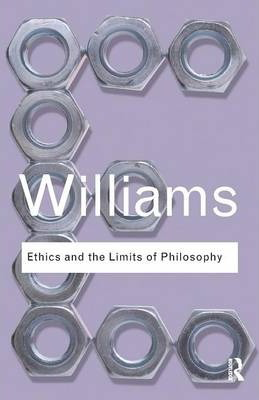
Bernard Williams Ethics and the Limits of Philosophy
A attractively written critique of the role of theory in ethical thinking and of morality as ‘a peculiar institution’. Influential in writings about moral education and other ethical issues in philosophy of education. Its approach is very different from the principles-based moral philosophy and moral education I first encountered in philosophy of education in the 1960s.
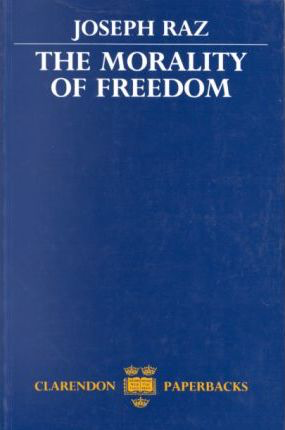
Joseph Raz The Morality of Freedom
This includes Raz’sfirst major discussion of personal well-being and of personal autonomy. His views on these and related topics have been refined through later essays in Ethics in the Public Domain, Engaging Reasonand The Practice of Value.

ABOUT THE INTERVIEWER
Richard Marshall is biding his time.
Buy his new book here or his first book here to keep him biding!
End TimesSeries: the first 302